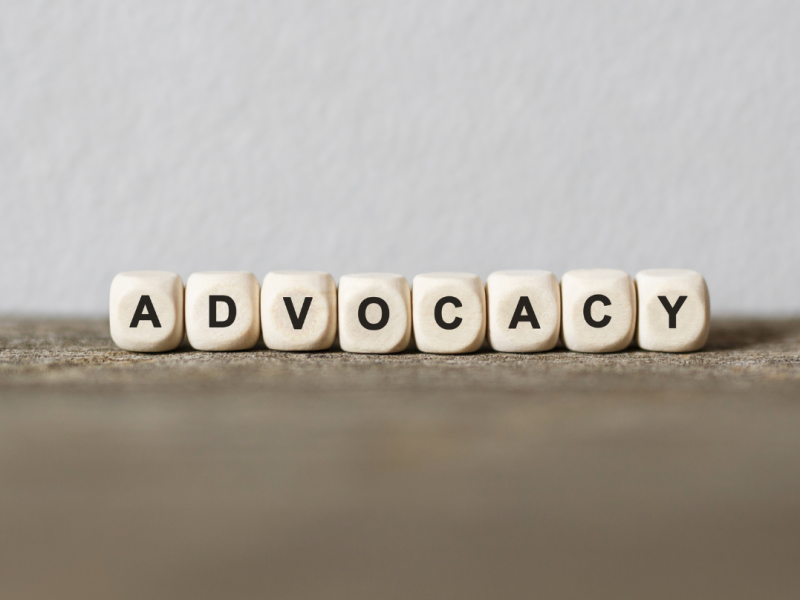If you read me, you know I promised to break down the new letter from Liberators4Justice asking all to sign a recommitment letter to the Independent Living Movement. I want to talk about the second part of the recommitment letter, Advocacy
The big bullets are:
- Civil Rights & Disability Justice
- Disability Leadership and Staffing
- Choice, Control & Community Supported Self-Determination
- Advocacy
- Deinstitutionalization
- Non-Conflicted Services
- Financial Equity and Integration
- Respect & Empathy
Let’s talk about the Fourth bullet, Advocacy
The letter says the following:
“ADVOCACY It is critical to protect and advance disability-led advocacy to ensure that no other movement represents us. We commit to providing individual, systemic, long-term, and community-wide change activities to ensure that people with disabilities benefit from all that society has to offer.”
Here, we are focusing on the fact that all human beings have the right to live a fulfilled life. We as a community must stand up to make sure this is the case, that discrimination is eliminated, that rights are upheld. It is critical that advocacy for self and disability led advocacy are the goals throughout. When those affected by policies are involved in their creation, the outcomes are more likely to address real needs and challenges effectively.
Talking Points
- Individual Advocacy:
- Get trained and educated on your rights and the ways in which you can advocate for yourself. A Minnesota example – Partners in Policy Making
- Build your personal support networks. Look for and foster relationships with your allies.
- Enhancing Control and Agency:
- Stress the significance of individuals having control over their own lives, including decisions related to daily activities, healthcare, employment, and living arrangements.
- Explain that promoting self-determination involves providing the necessary support and resources for individuals to exercise their autonomy effectively.
- Share examples of how technology, adaptive equipment, and personalized support services can enhance individuals’ sense of control and independence.
- Building Supportive Communities:
- Highlight the importance of creating inclusive and supportive environments where individuals with disabilities are valued members of the community.
- Discuss the role of community-based organizations, advocacy groups, and grassroots initiatives in promoting social inclusion and combating stigma and discrimination.
- Advocate for policies and practices that prioritize community integration, accessibility, and equal opportunities for all individuals, regardless of disability.
- Fostering Self-Determination Skills:
- Emphasize the importance of developing self-advocacy, decision-making, problem-solving, and goal-setting skills among individuals with disabilities.
- Discuss the role of education, training, and mentorship programs teaching individuals to advocate for their rights, navigate systems and services, and pursue their personal and professional aspirations.
- Highlight the value of peer support networks and mentorship opportunities in fostering a sense of belonging and empowerment within the disability community.
- Addressing Systemic Barriers and Disparities:
- Acknowledge the systemic barriers and inequalities that limit the ability of individuals with disabilities to exercise choice, control, and self-determination.
- Advocate for policy reforms and systemic changes to address issues such as inaccessible infrastructure, discriminatory practices, lack of affordable housing, limited employment opportunities, and inadequate support services.
We can promote a more inclusive and equitable society where individuals with disabilities have the opportunity to live with dignity, autonomy, and full participation in their communities. And when I say we, I mean all of us. We are all responsible to make the world the best place for everyone in it. And remembering that equal rights for one group does NOT diminish the equal rights of another.
The letter to commit to standing behind and reigniting the Independent Living Movement is still taking sign-ons. You can find the full letter here and make the choice to sign on if you wish. Go to the letter and signature page of the IL Movement Recommitment Letter.
Want to talk about it? Reach out to The Information Tamer.


 The Interdependent Living Movement – Deep Dive Part 5 – Deinstitutionalization
The Interdependent Living Movement – Deep Dive Part 5 – Deinstitutionalization
